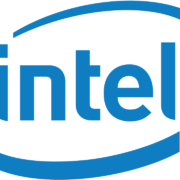Digital transformation holds benefits to the entire sporting ecosystem. From the rights holder to the stakeholder, the athletes to the fans, digital solutions help make operations more efficient and cost-effective inside organizations, while direct-to-consumer (D2C) media is expanding their reach to global audiences.
Further afield, this transition is having an impact on other sectors too, including how sport offers a platform to address the environmental and social challenges being felt across continents, as well as sport’s influence on the development of sustainable local infrastructure – covering mobility, energy, and stadia.
As the industry’s stakeholders become more sophisticated in the ways that they engage consumers via live sports, and major events organizers look to capitalize on data-driven solutions that help segment and commercialize the fan experience, digitalization also enables sports properties and their partners to plan for future events more strategically – whether that is to nurture lasting fan relationships, increase productivity and return-on-investment (ROI), or support on the organization’s sustainability agenda.
In order to maximize their productivity, many are adopting innovation strategies that drive sustainable growth and help align their environmental and social commitments with their corporate objectives. For instance, the International Olympic Committee (IOC) cites an “urgency of achieving sustainable development” as part of its Olympic Agenda 2020+5 roadmap, as well as establishing the Olympic Movement as an “important enabler” for the United Nations’ (UN) Sustainable Development Goals (SDG).
According to research carried out by Deloitte, 60 percent of consumers want organizations to change their practices to help tackle societal issues and reduce carbon emissions. In the wake of the Covid-19 pandemic, several sports bodies have accelerated their digital transformation to meet these demands and are adopting technology partnerships that serve both their digital transformation strategy and corporate social responsibility (CSR) objectives.
MAJOR EVENTS ORGANIZERS ESTABLISHING A “DIGITAL LEGACY”
Two years out from the next iterations of the Olympic and Paralympic Games, the Paris 2024 Organising Committee announced a partnership in April with UK-based software company OnePlan to develop digital twins for all of its event venues using GSI mapping technology, and will aim to make the delivery of the Games more efficient and more sustainable.
Speaking on a panel during Global Sports Week (GSW), which was held in the French capital between 9th and 13th May, Omar El Zayat, Head of Innovation Integration at Paris 2024, and Paul Foster, OnePlan’s chief executive, spoke about their desire to leave a “digital legacy” in the build-up and on the back of the Olympics and Paralympics, including among the Games’ stakeholders and brand partners.
“What we talk about is a digital legacy that potentially starts before the Games,” Foster said. “By using the digital twin to drive efficiencies and linking with Intel around the Internet of Things (IoT) and identifying inefficiencies in the facilities, we are starting to talk more about digital legacies and how that feeds into the sustainability agenda.”
El Zayat said that the legacy that the Games will leave is “an important aspect of our vision” for both the venues they adopt for the Games, and also the fans they engage in-stadia and those watching remotely.
“We don’t want to have something we’ve built and spent a lot of time doing for two two-week events,” he said. “It’s very important for us to take into account an exchange with the venues to see if they can be [re-used] on a long-term basis.”
He added: “Enhancing the fan experience is very important and making sure they are active. Everyone will not be able to attend but we’re opening several events for people to participate in. We’re thinking about how we can use the technology to engage fans both digitally and also physically.”
“By using the digital twin to drive efficiencies and linking with Intel around the Internet of Things (IoT) and identifying inefficiencies in the facilities, we are starting to talk more about digital legacies and how that feeds into the sustainability agenda.”
DIGITAL TWINNING SUPPORTING NATIONAL BODIES AND STAKEHOLDERS
Speaking alongside N3XT Sports chief executive Mounir Zok, who moderated the session, OnePlan’s Foster said that the company’s digital-twin technology helps event organizers to “better visualize data” when preparing their events infrastructure and transport links. This helps reduce the amount of time stakeholders are required to spend on-site, while also presenting an opportunity for broadcasters and sponsors to develop their Games operations and activations virtually.
“It’s not about re-inventing the wheel and replacing all those existing processes,” Foster said, speaking to the implementation of OnePlan’s digital-twin technology into an organization’s existing infrastructure. “It’s about connecting with them and providing efficiencies and real value where it’s needed, and to make it accessible for people to use.”
As part of the partnership, Foster said that OnePlan has been liaising with National Olympic Committees (NOC) and National Paralympic Committees (NPC) that will benefit most from the technology, stating that “being able to use the digital twin to drive efficiencies in facilities” is supporting those stakeholders who may not always be able to attend or afford multiple site visits in the build-up to the Games.
“Enhancing the fan experience is very important and making sure they are active. Everyone will not be able to attend but we’re opening several events for people to participate in. We’re thinking about how we can use the technology to engage fans both digitally and also physically.”
WHAT'S N3XT?
In order for sports organizations to take a more proactive approach to increasing the sustainability of their products, collaboration is key for the development, testing, and implementation of digital solutions that will support the industry. This doesn’t only include how organizers enhance events infrastructure, but also their ability to encourage fans to engage with the sports they watch in a sustainable way.
By adopting digital solutions that make organizations more efficient and reduce planning costs, while also leveraging digital solutions that enhance the fan experience, sports properties are attempting to demonstrate that sustainable innovation can have both a positive impact on their ESG initiatives and the organization’s bottom line.
To find out more about how N3XT Sports can support your organization and its digital transformation, please fill out the form below and we’ll be in touch. We look forward to hearing from you.



